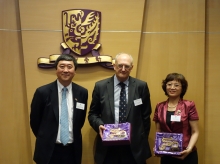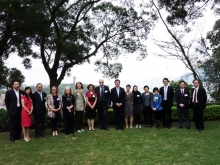CUHK
News Centre
Autism Prevalence in ChinaResearch Collaboration to Explore Whether Autism is Currently Under-diagnosed; Pilot Study Suggests One Per Cent of Chinese Population Has Autism
Researchers from the University of Cambridge (Cambridge), the China Disabled Persons’ Federation (CDPF) and The Chinese University of Hong Kong (CUHK) met today (18 April) to launch a new collaborative study into the prevalence of autism in mainland China.
Autism Spectrum Conditions (ASC) affect one per cent of the general population in Western countries. However, it is unclear as to whether autism is as prevalent in China. A pilot study conducted by the University of Cambridge’s Autism Research Centre and Cambridge Institute of Public Health suggests that autism in China is currently under-diagnosed and may be in line with Western countries at one per cent. This collaboration will enable Cambridge, CDPF and CUHK to determine whether a one per cent estimate also applies to China.
At the meeting were the University of Cambridge’s Vice-Chancellor Professor Sir Leszek BORYSIEWICZ, the Chinese University of Hong Kong’s Vice-Chancellor Professor Joseph SUNG and Director-General of Rehabilitation Department of CDPF Professor Hong YOU.
If it is confirmed that China has the same prevalence rate as Western countries, an astonishing 14 million people could have the condition. The researchers argue that a correct estimate of the number of people affected will enable better care and planning for these individuals.
This collaborative project is led by Dr Sophia Xiang SUN, who recently completed her PhD in Cambridge and has joined CUHK in the School of Public Health and Primary Care. With the funding support from CUHK and CDPF, the project will entail a large epidemiological study involving 250,000 people across 14 cities within 14 provincial regions in mainland China. The aim of the research is to implement the validated techniques from the pilot to whole populations to provide key estimates on the prevalence of ASC, and to build capacity in research and appropriate clinical and social support services in China.
Dr Sophia Xiang Sun said, ‘This is an important new study. Previous research into the autism spectrum in China has mainly focused on the most severe subtype, childhood autism. That may partly explain the low prevalence previously reported. By adopting standardised study methodology and instruments, we can compare the results with Western countries and obtain a better understanding of the current situation of this condition in China.’
Notes for editors:
- The Autism Research Centre (ARC) at the University of Cambridge conducts research on both the causes of and interventions for autism spectrum conditions. See www.autismresearchcentre.com. The Cambridge Institute of Public Health works with the ARC on the population-based studies on autism. See www.iph.cam.ac.uk.
- The School of Public Health and Primary Care (SPHPC) at the Chinese University of Hong Kong is conducting a number of studies of autism, including a Worldwide Universities Network funded project (led by Prof. Huso Yi) to comparatively assess the resources of diagnosis, community health care, education, employment, community support and social welfare for individuals with ASC in partnership with 11 universities from 9 countries, including mainland China. For more information about SPHPC, please visit www.sphpc.cuhk.edu.hk/cms/.
A group photo of some participants at the roundtable meeting [Professor Sir Leszek BORYSIEWICZ, Vice-Chancellor of Cambridge (5th right); Professor Hong YOU, Director-General of Rehabilitation Department of CDPF (4th right); Professor Joseph SUNG, Vice-Chancellor of CUHK (middle); and Dr Sophia Xiang SUN, project-in-charge (5th left)].
Researchers from Cambridge, CDPF and CUHK at a roundtable discussion on a new collaborative study into the prevalence of autism in mainland China.
Professor Joseph SUNG, Vice-Chancellor of CUHK, presents a souvenir to Professor Sir Leszek BORYSIEWICZ (middle), Vice-Chancellor of Cambridge and Professor Hong YOU, Director-General of Rehabilitation Department of CDPF (right).


![A group photo of some participants at the roundtable meeting [Professor Sir Leszek BORYSIEWICZ, Vice-Chancellor of Cambridge (5th right); Professor Hong YOU, Director-General of Rehabilitation Department of CDPF (4th right); Professor Joseph SUNG, Vice-Chancellor of CUHK (middle); and Dr Sophia Xiang SUN, project-in-charge (5th left)].](https://www.cpr.cuhk.edu.hk/wp-content/upload/resources/press/photo/516fba50d6792.jpg)
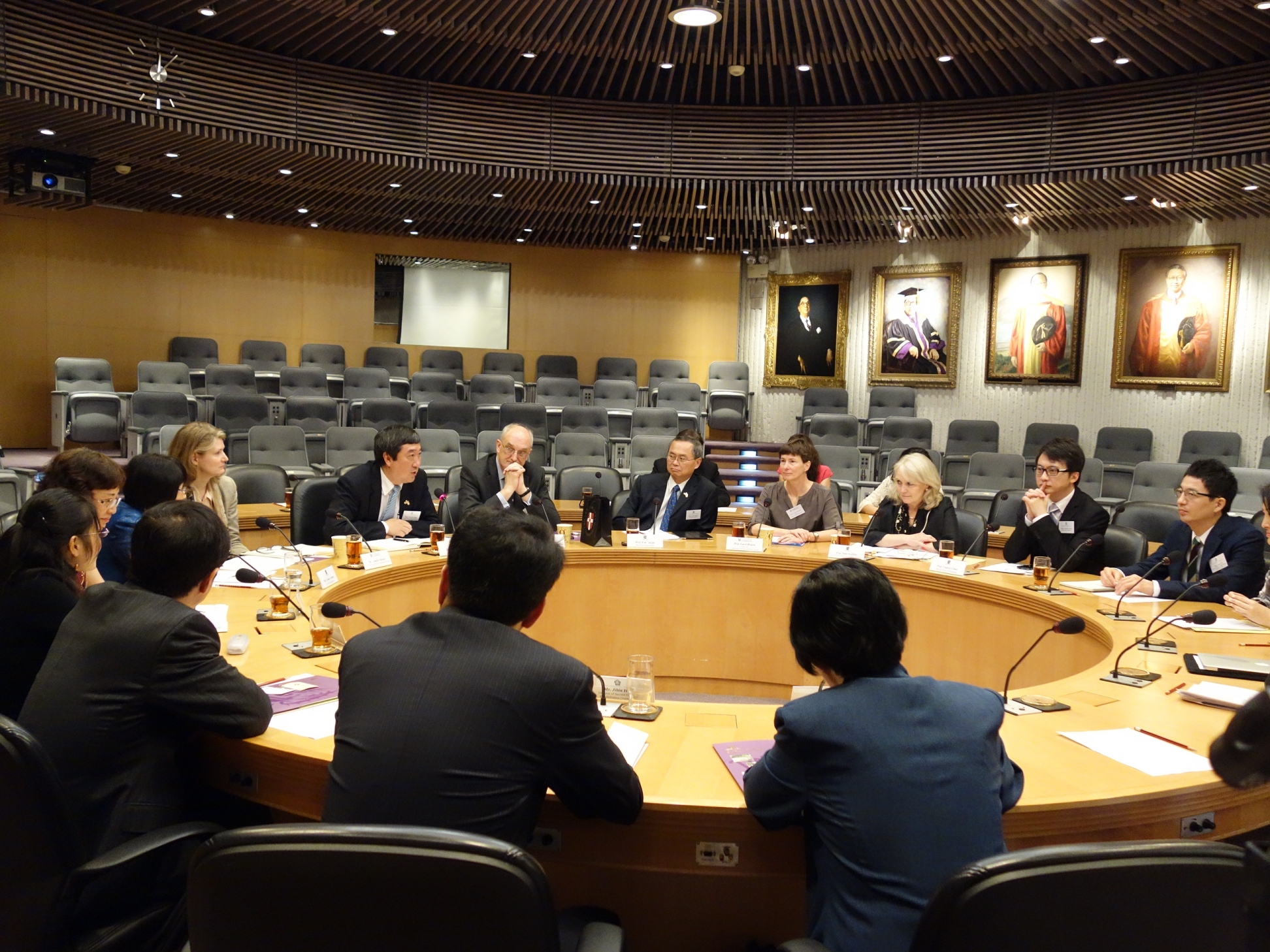
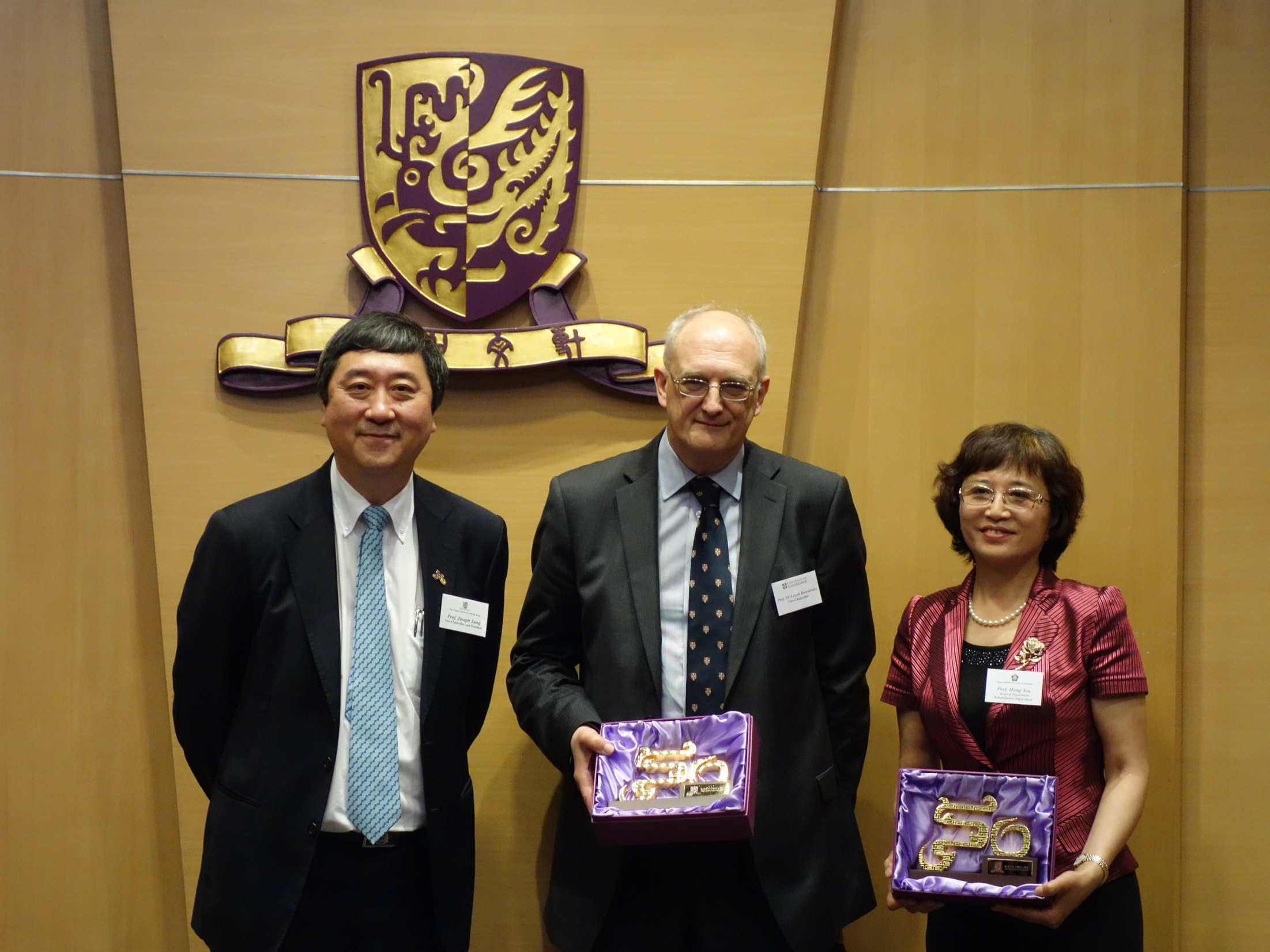
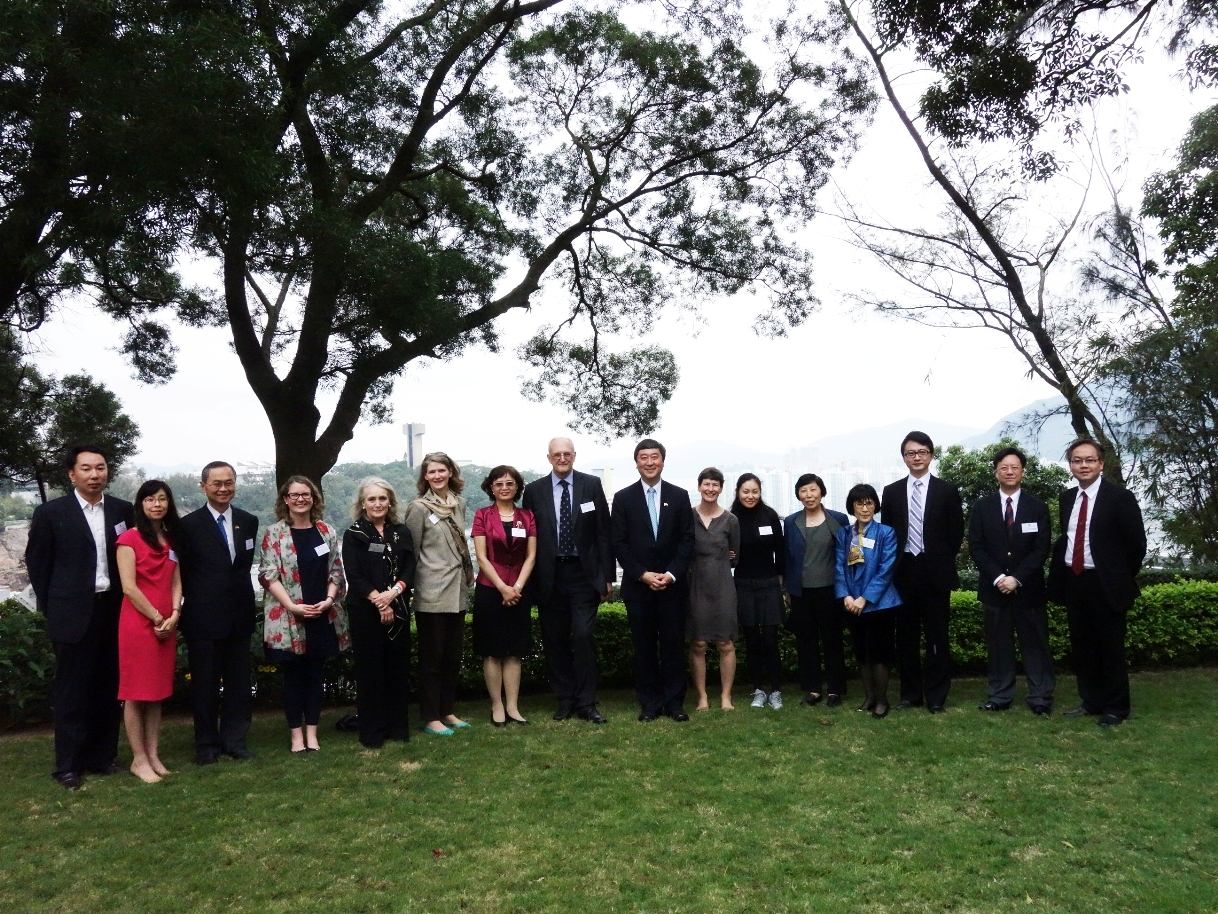
![A group photo of some participants at the roundtable meeting [Professor Sir Leszek BORYSIEWICZ, Vice-Chancellor of Cambridge (5th right); Professor Hong YOU, Director-General of Rehabilitation Department of CDPF (4th right); Professor Joseph SUNG, Vice-Chancellor of CUHK (middle); and Dr Sophia Xiang SUN, project-in-charge (5th left)].](https://www.cpr.cuhk.edu.hk/wp-content/upload/resources/press/photo/s_516fba50d6792.jpg)

